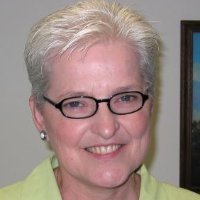MSP is presenting a three part Aging Workshop series on dementia beginning on November 3. Micheline Sommers, LMSW, Coordinator for the MSP Certificate in the Psychology of Aging and Well-being, has designed the content to be relevant for both professional caregivers and for people who care for loved ones at home. In this week’s blog, she explains why this series is essential learning for caregivers.
What is dementia?
It is the loss of a person’s cognitive, or intellectual function. It is not loss of memory alone but all mental tasks from remembering our name to performing complicated mathematical problems. The disease affects problem solving ability, decision making, judgment, our orientation to the world around us and our ability to put together simple sentences. It affects our ability to understand and communicate our thoughts and words.
Why do we need to learn about the disease dementia?
- Much like other life challenges, we don’t necessarily seek information for a challenge until we are in the throes of the crisis. The disease of dementia is occurring more often as the aging population reaches an age when they are particularly high risk. There are 5.3 million Americans currently diagnosed with some type of dementia and that number is expected to increase by 40% to 7.1 million over the next ten years. One in nine persons over 65 are living with some form of dementia while one in three will die from this disease.
- Individuals with dementia experience mood disorders, behavioral problems, delusional thoughts, depression and anxiety. There are interventions to help cope with these challenges. You can develop your awareness of the symptoms of dementia and the interventions that will help the caregiver cope with daily challenges as well as assist the person with dementia to experience the best quality of life possible.
- Approximately 34.2 million Americans have provided unpaid care to an adult age 50 or older in the prior 12 months. The majority of caregivers are female (60%), but 40 percent are male. A large majority of caregivers provide care for a relative (85%), with 49 percent caring for a parent or parent-in-law. In a recent study Sponsored by AARP about Caregiving in the U.S. more than 8 out of 10 (84%) caregivers state that they could use more information on or help with caregiving topics.
What information do caregivers need?
Caregivers most commonly want information about keeping their loved one safe at home (42%) and about managing their own stress (42%), and 22 percent want help about making end-of-life decisions. Managing challenging behaviors is an informational need for those caring for someone with Alzheimer’s or dementia (30%). One person in 10 provides care for a spouse.
Do you fall into any of these categories: adult child, spouse, partner, family member? Now is the time to learn about the symptoms for early diagnosis of dementia when it can be most effective. Now is the time to learn about communicating with someone who has dementia. Now is the time to learn what to expect after the diagnosis so that you can be prepared and now is the time to learn how to manage challenging behaviors effectively. Most importantly, now is the time to learn how to take care of yourself!
 Micheline Sommers, LMSW, has been in the geriatric field for thirty years and presents on topics of interest for older adults and their caregivers at the national, state and local level.
Micheline Sommers, LMSW, has been in the geriatric field for thirty years and presents on topics of interest for older adults and their caregivers at the national, state and local level.